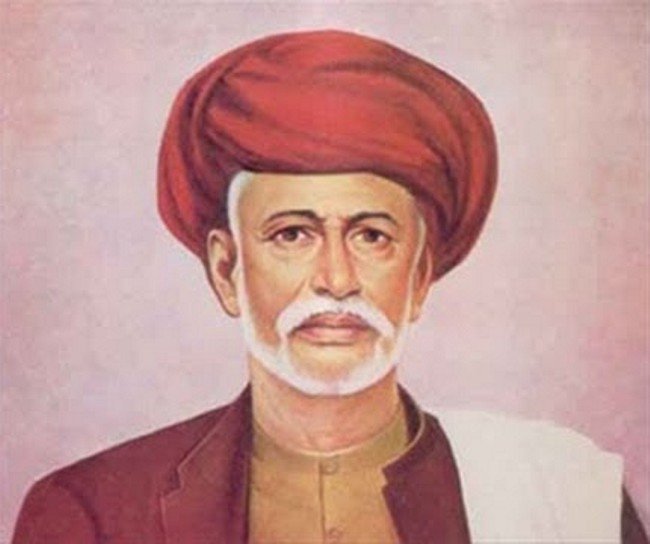Jyotirao Phule or Jyotiba Phule was born on 11th April, 1827 was a great social reformer, thinker, writer, philosopher. He was born in Mali caste, which was categorised as shudra in Brahmanical varna order. His father, uncles everyone in family was florist that’s why they are called as ‘Phule’. When he was young, he married to Savitribai Phule. Jyotiba helped young Savitribai to complete her education, and together they fought caste discrimination and opened the first school for girls. Jyotiba Phule anti-caste thoughts had empowered the marginalised of the country to fight the barriers of caste and make themselves educated and empowered.
- “If the Brahmans really wish to unite the people of this country and take the nation ahead, then first they must drown their cruel religion, which is customary amongst both the victors ( Brahmans) and the vanquished (Shudras), and they publicly and clearly, must cease using any artifice in their relationship with the Shudras, who have been demeaned by that religion and trample on inequality and the Vedanta opinion, and till a true unity is established, there will be no progress in this country.”
- “There cannot be a ‘nation’ worth the name until and unless all the people of the land of King Bali – such as Shudras and Ati-Shudras, Bhils (tribals) and fishermen, etc, become truly educated, and are able to think independently for themselves and are uniformly unified and emotionally integrated. If a tiny section of the population like the upstart Aryan Brahmins alone were to found the ‘National Congress’ who would take any notice of it?”
- “Hair cutting is not a barber’s religion, but business. Stitching leather is not a business of cobbler, it is a business. Similarly, worshiping is not Brahmin’s religion, but business.”
- “Do not ask the caste who were involved in your struggle.”
- “Intelligence is lost without education, morality is lost without understanding, development is lost without morality, and Shudra is ruined without money. Education is important.”
- “Brahmins say that education has made them repentant. In fact, they reformed themselves only to secure themselves in good positions with the British. While at home they continue to worship pieces of stone.”
- “The God of the temple is the fraud of the Brahmin. How can a stone that makes up the world be confined to a particular or special place? How can gods be used in the stone from which roads, houses, etc. are built?”


